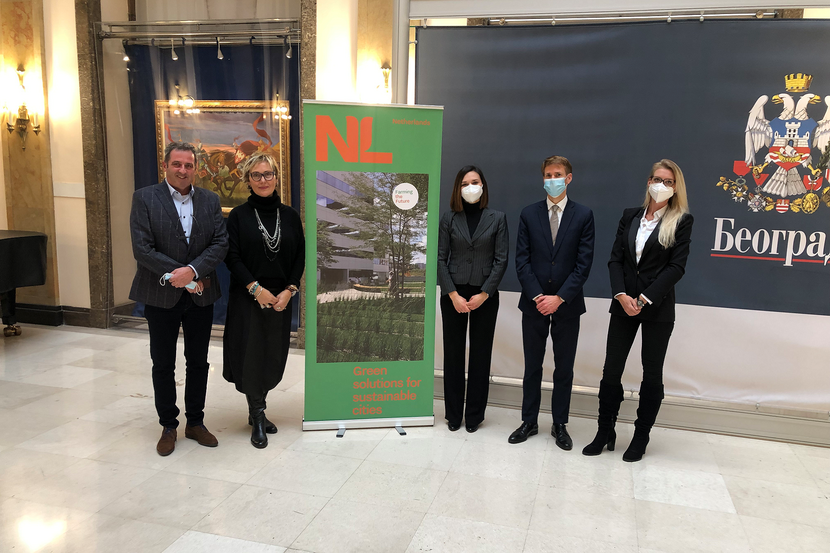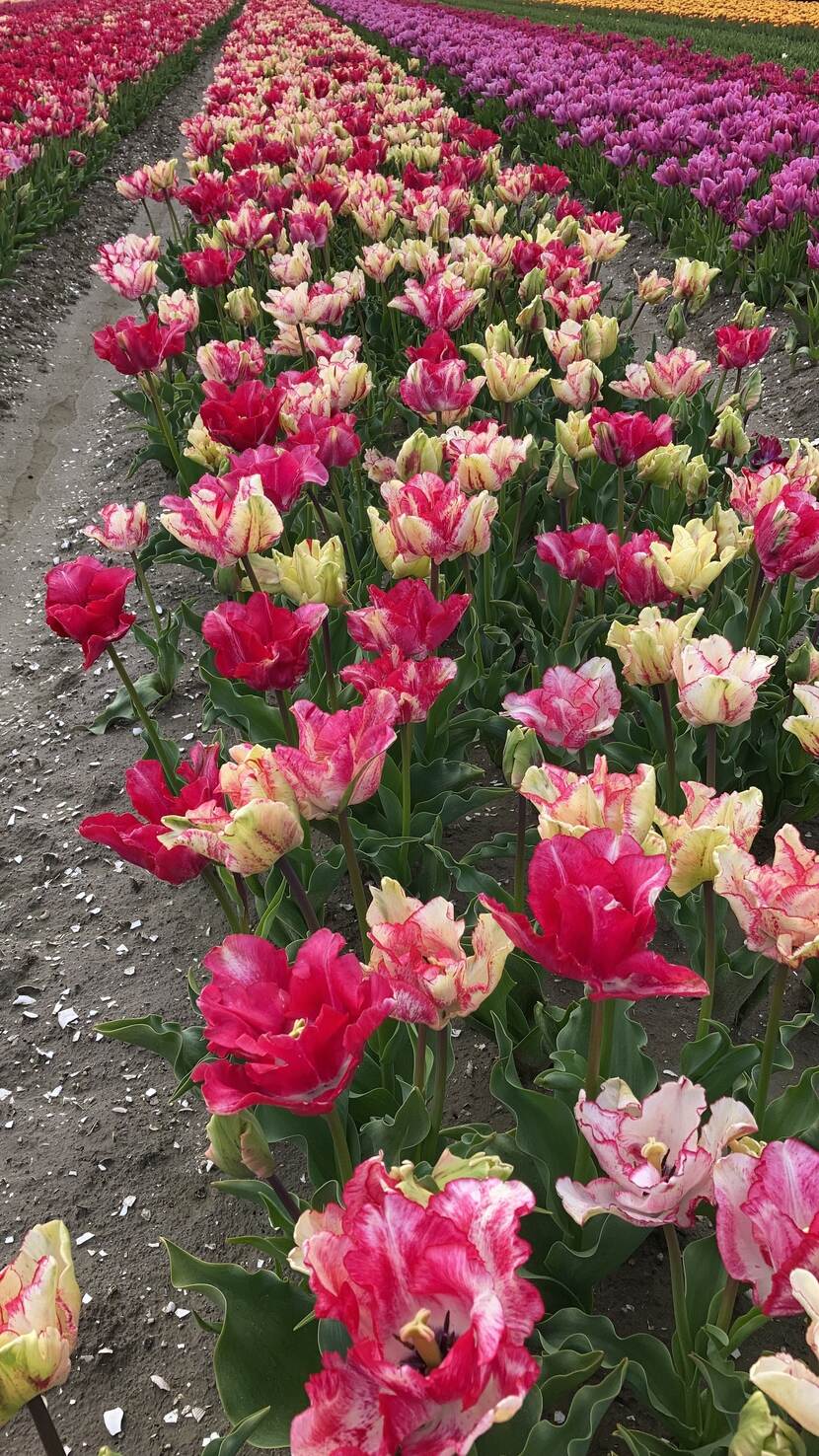Tulip Planting in Belgrade marks Green Cities Serbia project launch
A new Partners for International Business (PIB) project, Green Cities, is expected to aid in urban greening, making cities more liveable, sustainable and climate-resistant.

To assist in the green transformation of urban areas in Serbia, the Dutch public and private sector have joined forces and established the Green Cities Serbia partnership.
Mr. Joost Reintjes, the Dutch Ambassador in Serbia and Mr. Marko Stojcic, the City Architect have planted a new variety of tulips to officially launch the PIB project Green Cities Serbia.
Climate change, pollution, and the worsening of air quality are issues gaining in importance in Serbia. The country, and the region, have been facing extreme weather conditions, including heatwaves, droughts and floods, that are threatening lives and livelihoods.

Greening urban landscapes is not only aesthetically pleasing, it also helps reducing greenhouse gas emissions, decreases city temperatures throughout the hotter and hotter summers, improves air quality, facilitates water management, supports biodiversity and it can even reduce noise pollution. And for those looking for more direct and quantifiable benefits: it raises property prices. All in all, there are plenty of reasons to make greening an integral part of urban development.
Being very aware of these benefits, the Serbian government and cities such as Belgrade, Nis and Novi Sad have ambitious plans to improve urban greenery. By 2025, at least one quarter of the urban spaces in these cities are expected to be green. There are lots of concrete opportunities to make the shift towards green cities. Belgrade is building and expanding rapidly and some major greening projects have already been set into motion, like the Linear Park project.
In order for greening to be an integral part of urban development it is important it takes a central position in the planning and budgeting processes of large-scale projects, especially in new builds but also for renovations.
The Green Cities Serbia partnership is a consortium of experienced private companies that offer sustainable and innovative solutions for greener cities and together with the Netherlands Embassy they have put their knowledge and experience at the disposal in order to make Serbia’s cities even more livable, sustainable and beautiful.
***
In other news,

In this week’s Hungary Newsflash, you can find out more about Hungary’s macroeconomic projections for the coming years, an employer tax cut package announcement, the expected milling industry and bakery product price increase, and the foreign expansion plans of the National Stud Farm.

In the latest Serbia Newsflash, we report on changing crop prices at the commodity market, the new EU-Serbia COVID certificate agreement, changing consumer habits regarding recycling, Western Balkans trade streamlining and the accelerating Serbian economic growth rate.